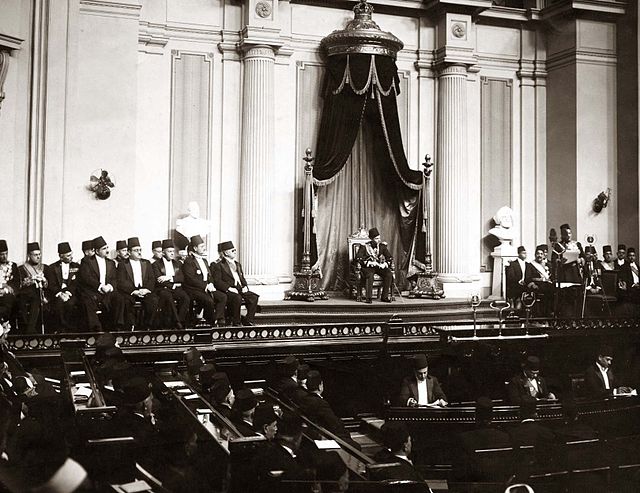History of Egypt under Gamal Abdel Nasser
The history of Egypt under Gamal Abdel Nasser covers the period of Egyptian history from the Egyptian Revolution of 1952, of which Gamal Abdel Nasser was one of the two principal leaders, spanning Nasser's presidency of Egypt from 1956 to his death in 1970. Nasser's tenure as Egypt's leader heralded a new period of modernisation and socialist reform in Egypt, along with a staunch advocacy of pan-Arab nationalism, and developing world solidarity. His prestige in Egypt and throughout the Arab World soared in the wake of his nationalisation of the Suez Canal Company in 1956, and Egypt's political victory in the subsequent Suez Crisis, but was damaged badly by Israel's victory in the Six-Day War.
Gamal Abdel Nasser in 1966
Nasser handing documents to an Egyptian fellah in a land distribution ceremony in Minya, 1954
Nasser addressing the United Nations General Assembly, 1960
Nasser returns to cheering crowds in Cairo after announcing the nationalization of the Suez Canal Company
The Egyptian revolution of 1952, also known as the 1952 coup d'état and 23 July Revolution, was a period of profound political, economic, and societal change in Egypt. On 23 July 1952 the revolution began with the toppling of King Farouk in a coup d'état by the Free Officers Movement. This group of army officers was led by Mohamed Naguib and Gamal Abdel Nasser. The Revolution ushered in a wave of revolutionary politics in the Arab World, and contributed to the escalation of decolonisation, and the development of Third World solidarity during the Cold War.
The leaders of the Revolution, Mohamed Naguib (left) and Gamal Abdel Nasser (right) in a Cadillac
King Farouk I of Egypt in Parliament listening to Mustafa el-Nahhas Pasha's speech.
Poster from the Egyptian nationalist Ahmed Hussein for complete independence
Egyptian police fighting in the Battle of Ismalia








